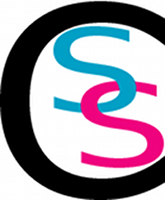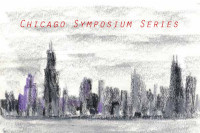Breakout Sessions for Friday, March 13, 2015
Victor Donnay, Bryn Mawr College; Martina Bode, Northwestern University; Barbara Gonzalez, Roosevelt University; and Cathy Evins, Roosevelt University
In this hands-on session, participants will explore a number of SENCER problems that might be used in a mathematics or science course. Participants will each work on problems from one of the following sustainability themes: 1. rising CO2 levels; 2. sea ice melting; 3. energy generated by solar panels 4. Is it "worth it" to change light bulbs and think of how they might incorporate such units into their own teaching.
Lessons, teaching guides and data for each theme are available by download:
Rising CO2 Levels
Polar Ice
Solar Panels
Light Bulbs
John Baldwin and Donald Wink, University of Illinois at Chicago
Through CTTI (Chicago Teacher Transformation Institutes) we have been offering a series of 1 day workshops for high school mathematics and science teachers organized around the notion of equilibrium. Equilibrium systems, whether they involve homeostasis in biology, reversible reactions in chemistry, or balances of forces in physics, are common throughout science. Perhaps under terms such as “balance” or “stability,” equilibrium provides some of the conceptual basis for how systems behave and how students can come to understand science. Often, equilibrium also involves a mathematical structure that describes or, in some cases, can be used to predict how a system is both stable and how it can become unstable. These workshops explore the principle of equilibrium through specific examples in the sciences and through general principles associated with mathematical representations of equilibrium.
Topics have included: focusing a lens as a kind of equilibrium, the global energy balance and climate change, the notion of genetic equilibrium in 20th and 21st century biology. We will discuss the composition (around 20 teachers per session - growing) and include activities for the participants on one of the topics.
Andrew French and Erica Maslanka, Northwestern University
Attendees will learn about the Gateway Science Workshop program (GSW) and the Academic Mentoring Program (AMP) at Northwestern University. GSW and AMP are both peer-led programs designed to enhance student learning in challenging introductory courses in a broad range of disciplines, including chemistry, physics, and math. While both programs provide a student-friendly environment where diverse groups of learners can work together with a peer mentor, GSW and AMP differ significantly in their approaches, mentor support, and target student populations.
This session presents an overview, along with goals and structures of each program. The structural differences and student impact will also be highlighted. During this session, the presenters will share their perspectives of and experiences with the programs, as well as the various challenges that have arisen and how those have been addressed. The audience will be invited to join in a discussion about GSW, AMP, and similar programs offered at other campuses. Additionally, information will be provided about the new Peer-Led Undergraduate Study program (PLUS), including participation and feedback data.
Andrew Kerr, Truman City College
Most teachers dislike testing because they feel that tests interfere with the learning process. At the same time, research shows that frequent testing can help students learn. Recent research conducted by Elizabeth Ligon Bjork at UCLA has shown that pre-testing can improve retention of the pre-tested material. Likewise, new research at the University of Texas suggests that replacing big exams with a series of short quizzes also improves student performance.
Too often, the classroom “learning process” involves a teacher lecturing to passive students. Yet research confirms that a collaborative, workshop-oriented classroom improves student learning in the math and sciences. The University of Colorado, UC-Davis, and the University of North Carolina have all replaced the lecture format in their science classes with a more student-focused and student-driven approach.
This breakout session will be a chance to share ways to combine all of these interesting results into a new way of conducting math and science classes. Can there be a way to do “collaborative testing,” where students work together to complete frequent, team-based projects that would function as quizzes? The presenter will share his own data and experiences developing the ‘collaborative quiz’ and provide examples for participants. Participants will have the chance to talk together to share experiences, and finally to work together to develop a ‘collaborative quiz.’

